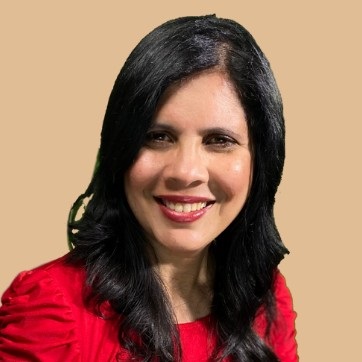Full Name: Irma Kollar
Country of Origin: Russia
Current Company/ Job Title: Freelance Film and Video Producer
Videos :https://vimeo.com/irmakollar
1. What made you move to the USA? Which city did you move to? Was the move to the USA hard for you?
I moved to the states out of curiosity. I always wanted to explore living in this country. My first destination was the Silicon Valley, then I moved to L.A. to be closer to the film industry, and a year later I moved to the San Francisco Bay Area where I have been living since. Moving to the U.S.A. and leaving my life in Moscow was a hard decision, considering I had a decent career, and lots of friends and family. However, there is an old Russian proverb:
“He who doesn’t risk never gets to drink champagne.”
So far, I can agree with it.
2. What do you wish someone had told you when you first moved to the U.S.A.?
Quite honestly, it is very difficult to give any good advice to people you don’t know. I think all people have very individual experiences and personal needs.
3. What did you do professionally in your country before you moved here What was your first job in the USA? And if it was different from your career goal, what motivated you to continue?
Back in Moscow, I worked as a TV journalist, creative director and a producer with a few top network stations. After I re-started my professional career in the states I started work as a “P.A.” (Production Assistant), which is really the bottom of the ladder in the film and video industry. It was a great way for networking with people in the film and video industry.
4. Best moment of your career so far?
I just started my career here in the U.S., so I don’t have any big awards to boast of so far. For me it is very important to work with talented and ambitious professionals, to create truly beautiful video content and to receive positive feedback from the clients and the audience.
5. What is a typical day like for you on a film shoot?
Usually film shoots start really early in the morning, for example at 6AM or 7AM in the morning. I have to make sure my crew finds the location of the shoot, and then I have a quick breakfast, followed by 10 cups of coffee that help me stay awake. Typically my work as a producer on a set consists of making sure that the crew is on schedule, that actors are performing drama only in front of the camera, signing the proper paperwork and talking to the clients to make sure we are on the same page. My day is done after 10-12 hours of production.
6. What are three things you like about the USA?
I like that people here are concerned about preserving the environment. I really appreciate that city life is not too far removed from nature and wildlife; this is something that I was deprived of in Moscow. Near my house I often see deer, or big fat raccoons, or groups of wild turkey, which is really amazing.
I like that the majority of Californians are into healthy life-styles. A lot of people are trying to eat only organic food; there are a lot of fitness centers, yoga and pilates studios, and people are concerned about their health and looks.
I appreciate the fact that I am living in one of the most progressive countries in the world. History is being made here. I see electric cars, green buildings, cool new tech products every day. This is very inspiring!
7. What is your favorite American food? Favorite city in the USA? Favorite store and restaurant?
I like “Thanksgiving” food with turkey, stuffing, and pumpkin pie. When I was a kid, I remember studying Thanksgiving traditions at my school and wondering about pumpkin pie. I didn’t know it is a sweet dish, so I thought it was strange that it was eaten as dessert. When I finally tasted it, it was delicious! Although it is very unhealthy, I think you can treat yourself once a year.
I think Carmel By the Sea is a very cute little town with nice restaurants, art galleries and antique shops. I truly enjoy Marin County, the place where I live, for the gorgeous nature preservations, little cute towns with old movie theatres, and safe neighborhoods. I love lake Tahoe for the scenic views, snow that I miss, and great vacations. As for the big cities, I am still searching for my favorite place.
Since I like sushi a lot, I can say that Umami in San Francisco is definitely in my top five. The food there is great and fish is always fresh and they always have happy hours from 5pm to 6pm every singe day including weekends. Also, they play audio tutorials to learn Japanese in their restrooms. I think it is very cute.
Since I don’t like big malls (they scare me with their annoying music and bright, artificial light), I was happy to discover that some malls in California are outdoors. Usually those places have a few coffee shops, places to eat, and even beauty salons.
8. What advice would you give to other expat women who are in the film/television industry and have recently moved here or are planning to move here?
In my opinion, networking is the key to success in any industry. Join professional groups, attend networking events, and take related classes in the local community colleges. Also, companies that help foreigners to restart their professional careers in the states could be extremely helpful. For those who specifically want to build their careers around film business, I recommend living close to Los Angeles or New York, places with unlimited career opportunities. If you are located in different destinations, I will encourage you to contact all local production companies. Don’t rely on posts online. I only know of a few people who got jobs through online advertisements.
9. Was it hard finding a job in your professional field in the USA? Please share how you got the job in your field and what are some of the films you have worked on?
Because the industry I am working for is very unusual and specific, I don’t think it was very easy to find a job in the very beginning. First, I started to network, met people, and set up informational interviews. Then, some people I met were offered me small gigs in companies where they were working. After I proved myself as a dedicated and reliable professional, some directors and executive producers offered me producer positions on projects they were involved in .
Right now, my career is focused on the commercial video market. So far, I produced videos for Yammer, Levi’s, Bebo, SF Gate, Francisco Partners and many startup companies. I also produced a micro-budget feature film, The Purple Onion. It is currently in post-production and I can’t wait to see it on the big screen.
10. What advice would you give to professional expat women about finding jobs in their field?
The most important thing is to believe in yourself and never think that your accent could be a barrier to your success. Also, I will encourage foreign women to apply for managerial positions without hesitation. I know that in some countries, where women are treated as second-class citizens, a young girl can never dream about being a “boss”, but in the United States this is a reality.
11. What are three things you found about the USA that were different from your country or you found hard to adjust to?
First, everybody smiles and greets each other when crossing paths on a hike and in the streets. People in Russia are very friendly but they look grumpy and act distrustful of strangers. It took me over a year to learn to smile and greet people in the street or in the store. Another big difference is the large portions served in certain restaurants. In the beginning I used to try to finish the whole dish, but then I gave up. The last difference is that most cities and towns in the U.S. are “un-walkable” and you need a car to go anywhere. I find this very annoying and unhealthy.
12. What are three fun or interesting facts about your home country?
Because Russia is the largest country in the world, it has 9 different time zones.
According to a government survey, every 5th female in Russia wants to be Vladimir Putin’s wife.
During winter, Russian artists spend hours building incredible palaces, buildings and figures from ice, and in spring all their art pieces are melting.
13. What is your favorite quote?
I like this one by Albert Einstein:
“Imagination is more important than knowledge. For knowledge is limited to all we now know and understand, while imagination embraces the entire world, and all there ever will be to know and understand.”





